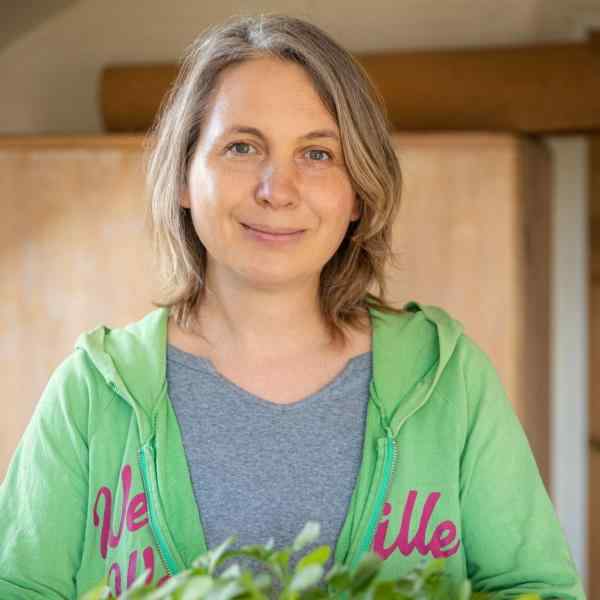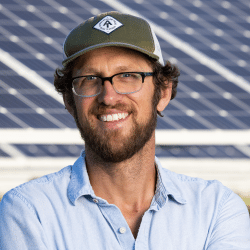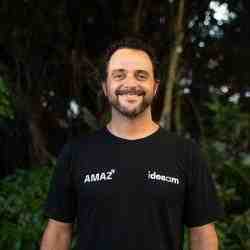Introduction
Dominika is radically limiting the volume of trash accumulating in landfills by introducing a new role to the system: trash brokers. Nearly 400,000 people have joined the movement that began with the idea of redefining the status and redistribution of unwanted objects, which is now creating a new culture around consumption.
The New Idea
Often items that are in perfectly good conditions are being thrown away instead of being reused and as a result, end up in landfills. The environmental impact of these actions is significant. An increasing volume of waste is being generated as the global population grows and living standards rise. According to The World Counts, as much as 99% of the things we buy are discarded within six months of buying them.
Dominika has proven that what is unwanted by some might be very useful for others and these items could find a new life instead of feeding a landfill. To give the undesired items an opportunity for a second life, Dominika added a new stage to waste management processes, in which the community can redefine the status of a given object. To achieve this, she has activated thousands of citizens as “trash brokers” who find potential in recently disposed objects and who engage local networks of individuals who can give these objects a new life.
In 2013, inspired by noticing great chairs and rescuing them right before a garbage truck arrived, Dominka created an online group called Quick: Garbage Truck Approaching! (Polish: Uwaga, śmieciarka jedzie). Through this group, citizens are able to give new life to discarded objects, redefining their status. Now, seven years later, the network has grown to 130 local leaders who facilitate interactions among nearly 400,000 trash brokers across 216 values-based, online local groups all over Poland. These trash brokers redefine the fate of 76,000 bulk waste objects per month. Annually, this amounts to almost forty tons of large format objects that don’t go to landfills but get a second life – at zero expense of the municipal budgets.
The Quick: Garbage Truck Approaching! movement is growing exponentially, attracting users through many perceived benefits – it is easy, fun, time effective, stigma-free, economically viable and empowering. Dominika is expanding the idea to other countries, and bringing businesses and public administrations on board, to ensure that no item that has the potential to be reused or upcycled ends up wasted on landfills.
The Problem
Households around the world generate 60 tons of waste per second, or 2 billion tons per year. It is estimated that by 2050 this value will increase by 70% reaching 3.4 billion tons per year. The costs for the planet are enormous.
Historically, disposability was promoted for its ability to make people feel rich: with throwaway products, they could obtain levels of cleanliness and convenience once available only to people with many servants. This idea of “new luxury” evolved to the extent that throwaway living became a mainstream lifestyle. As much as 99% of things we buy is trashed within 6 months. Perfectly good items are being thrown away instead of being reused, and thus end up in landfills. Marketing campaigns of commercial businesses have successfully convinced people that the long-term use and re-use of items is the domain of the poor, that is, people who are unsuccessful. The never-ending competition between consumers regarding who gets the next novelty has become the stimulus for economic progress. Mainstream culture is strongly fed by consumerism and promotes a “throwaway society”. An emerging global culture strives to establish flows of materials and energy that will not only satisfy the current customer demand but will create new desires. n Central and Eastern Europe, this phenomenon took off after the fall of communism in the 1990s, and that demand for possessing and consuming is still present.
Mainstream society still defines the status of its members through “owning of things”. Naturally, throwing them away follows – an average Pole produces 329kg of municipal waste per year, an average European 492kg. Using second-hand items is often perceived as an issue of class: trash making both underscores and creates social differences based on economic status. Junk stores and charitable thrift stores, which depend on richer people to cast things off, continue the traditional relationship between the actors of the exchange – the ones who benefit from it are “the poor”. Those who perceive the value of used items usually do so out of need. Donating also requires a significant investment of creativity, time, know-how, and luck, to find an organization, a store, or a suitable receiver. Not many people know how to repair items by themselves; experts value their work and companies do not support cost effective repair options. Finally, many people consider that if they separate their garbage into the right categories, they allow for it to be recycled. Yet, this is not a sustainable solution. Just as an example, less than 40% of plastic is recycled in EU. Recycled items are very often downcycled, to less quality objects and very often cannot be re-recycled again afterwards.
Additionally, households and cities have become open systems rather than circular ones over the course of the twentieth century. Waste used to be a part of the system and acted as a resource to other parts of it. Industrialization broke this cycle, because in an industrial system, waste flows one way: away from our households. Proper waste management, considered an essential municipal service, is important for building sustainable and livable cities, but it remains a challenge. Dealing with trash effectively is expensive, usually comprising 20%–50% of municipal budgets.
Although 93% of EU citizens say that climate change is an important (79% of them says that a very important) issue, most struggle with finding reasonable activities to significantly address it in their individual life according to survey requested by the European Commission in 2019. Recycling or saving water for many is just not enough for most. There is proof that local activism and individual everyday action can counteract this “climate grief”, but there are not enough initiatives of this kind at hand to significantly change people’s morale. This produces what some call “solastalgia” (a form of emotional or existential distress caused by environmental change) and eco-anxiety, which, according to Kaiser Health News (KHN), have been recognized as a contributing factor to the impact of climate change on human health and well-being.
The Strategy
Dominika’s vision is to create a new culture and change the way we think about the objects and items that surround us. She believes we need a new approach towards consumerism and the idea of possession as a token of social status and proof of happiness.
Years ago, Dominika realized that only a very limited number of items really can’t be used again and don’t have any value for anyone, and thus need to be disposed of. She is convinced that, since individual households produce so much trash, being the source of a huge part of the problem through their attitude towards “things”, they must be a dominant part of the solution. Therefore, Quick: Garbage Truck Approaching!’s strategy focuses first on creating a space for direct contact between individuals in order to collectively minimize the effects of overconsumption.
Beyond the volume of re-appropriated waste: 76,000 bulk waste objects per month, almost forty tons of objects annually that don’t go to landfills, the movement plays a critical role in how participants gain a new perspective of trash as a dynamic category. Objects move in and out of the definition, based on their owners’ decisions. This relatively simple change in their habits, as Dominika’s impact has proven, is a beginning of a chain of decisions they make to start expressing their love for our planet in action.
All this is possible thanks to a carefully thought-through set of values and rules that Dominika created and implements together with engaged local leaders. Dominika intentionally created the Quick: Garbage Truck Approaching! community as a space for joy and laughter. It disarms the taboo and shame around trash. Within this atmosphere, people are more willing to participate, share their trash (and their stories about it) and, in the process, open up to build relationships with their neighbors. The online groups are a natural platform for storytelling and exchange, creating room for conversations and creativity, using upcycling as a catalyst. Through this community, many individuals experience a significant change of their lifestyle and habits. Before they look for a thing they need in a store, they first check their local Quick: Garbage Truck Approaching! group to find it. One of local leaders told us “Joining the group was a big change in my life. It was a blessing for me to realize how things can be re-used. I am more respected in my community when I mention that I am part of Quick: Garbage Truck Approaching! Other people show their appreciation for the work we are doing, and they thank me.”
Additionally, these positive habits are changing behaviors, encouraging people to meet across social divide and minimizing the pressure caused by climate change. People in different social bubbles deal with trash differently and possess unique skills, needs and tastes. A working-class family, finally able to change their old, wooden window-frame to a more modern one, gave it to a middle-class family who used it to create a vintage mirror frame. Quick: Garbage Truck Approaching! makes it easier to get out of one’s own bubble, making item exchanges more likely. Dominika has changed the traditional social media tendency to only connect like-minded people to instead, unlocking their possibility to create communication channels across bubbles and to stimulate real, in person meetings. This usage of the online groups builds trust and social relations in real life, between persons that would otherwise not meet.
As a result of this process, Dominika has created a new role in the system – almost 400,000 trash brokers – who manage the process of defining what is and isn’t trash. A thing only becomes trash when trash brokers say it is so. Thus, by a simple act of offering to give the item away to someone who might need it (instead of throwing it away), it is “untrashed” and becomes valuable again.
Ultimately, Dominika’s ambition is to empower people to express their care for the planet in simple, individual actions. To fuel this shift, Dominika relies on facilitated relations among trash brokers to highlight personal narratives and the values of the growing Quick: Garbage Truck Approaching! community. In order to keep the network growing and alive, and therefore repurpose more items, Dominika created a methodology to identify, motivate, educate, and empower the 130 local leaders who become facilitators of the local online groups. These local leaders become ecology activists – online and offline. Thanks to the training materials designed by Dominika, they gain skills of inclusive, non-toxic communication and support others to grow. To ensure the quality of their engagement, Dominika also developed a robust internal communication platform and support groups for local leaders. The high quality of interactions in the groups and, more importantly, the values such as quality of relationships, respect, dialogue, embracing uncertainty, an “its ok to fail” attitude and, of course, lots of fun are key to maintain the pro bono engagement of the leaders.
To spread the idea Dominika and her team tell stories of items which were given another chance. By showcasing the “before and after” pictures and the happy notes from the new owners, they encourage persons to have their senses heightened to save as many items as possible. Because nothing is inherently trash, members of Quick: Garbage Truck Approaching! inform each other not only about their own items, but also about objects they notice in public spaces or near the garbage bins which they recognize as valuable or simply pretty. Through this active storytelling approach, Quick: Garbage Truck Approaching! not only reaches a broad audience but also inspires empathy, a deeper understanding of environmental challenges and active citizenship throughout communities as Dominika actively emboldens everyone involved to become storytellers themselves.
Dominika knowingly decided to establish a movement based on volunteer input. She developed a comprehensive set of volunteer management techniques and resources, as well as a platform for peer support for local leaders so they can contribute in easy ways, without having to build a heavy structure. This way, Quick: Garbage Truck Approaching! has consciously kept entry barriers low to allow for fast growth. Currently Dominika is establishing structures for effective collective decision making to spread the impact of Quick: Garbage Truck Approaching! even wider. Up until now, the only currency they have used has been time: all the work, as well as the items, are exchanged for free.
Due to the surprising organic growth, initially there was no need for a legal structure. Now, with such a wide reach within Poland and increasingly in other locations, Dominika and her team are in the process of implementing a new holacratic management principle, which they are implementing together to choose the best not-for-profit legal vehicle to enable the organization to continue to grow and scale internationally. They are also developing a more sophisticated online tool and application which will embody a feature that allows research and safe data collection.
With these key pieces in place, Dominika and her team are preparing to more intentionally address the many international requests for scaling that have come from persons who were members of the community and moved back home, or abroad, and miss the Quick: Garbage Truck Approaching! in their habitats. Almost 150K Poles live in London, 100K in Berlin, and 80K in Hamburg, making it a ripe opportunity to scale through migration patterns already in place; also, many European students (there is 57K international students in Poland) spend a year, or more, in Poland on Erasmus, where they learn about this approach and want to see it implemented back home. Dominika has identified local leaders ready to create new groups in Berlin, London, Bucharest and Lasi in Romania and Belo Horizonte in Brazil. Longer term, Dominika hopes that not only individuals across world will become trash brokers, but also districts and businesses.
Dominika is also engaging in conversations to provide a more structured support for advocacy in municipalities that need law changes to enable and encourage this kind of exchange in clean, effective ways. She is working on groundbreaking legislation to allow for re-circulation of trash from points of selective waste collection. She develops the advocacy branch to be able to make use of the collective wisdom of the community. The current Quick: Garbage Truck Approaching! community is so big, that under the Polish law, by engaging only every fourth person out of the current members, they have enough signatures to start a legislative process.
The Person
Dominika grew up in a home where quality things would get old “beautifully” and could be used for a lifetime. That is why she believes it is worth designing products well, using good quality materials and always choosing environmentally friendly solutions. This is part of the motivation that led her to become a product designer and study at the Academy of Fine Arts in Warsaw, where she led the foundation of a students’ union, using participatory methods. Always attentive to foundations and values to be followed, she also created a code of conduct for this organization.
Later on, Dominka launched a company that sells souvenirs from Warsaw designed by young artists, which she closed down after a few years, despite commercial success, because she felt it was creating more waste and damaging the environment. In 2009 she won a design competition by presenting a salad bowl made of glass from a washing-machine door. After this experience she became a promoter of design approaches that would be sensitive to social and ecological considerations. She decided that her role as a designer should be to reduce waste and making designs to enable human connections rather than merely having things.
In 2013 Dominika saw from her kitchen window in the central district of Warsaw that someone left some used but beautiful, old designer chairs next to the garbage bins. She didn’t need the chairs but at the same time couldn’t stand to see them end up at the landfill. She quickly published a Facebook post with a photo of the chairs before the garbage truck arrived. The response surpassed her expectations. That experience led Dominika to realize that there is no system in place to rescue “trash” from being wasted. She decided to use her professional knowledge and previous experiences of a designer to create one.
Through the early stages of this community, the “founding chairs” made their way to a new home. Over the years, so did hundreds of thousands of other items.




